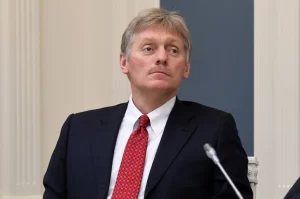
In response to the recent 100-year partnership agreement between the United Kingdom and Ukraine, the Russian government has voiced significant apprehension regarding potential British military involvement in the region. Kremlin spokesperson Dmitry Peskov stated that any British military role in Ukraine under this new deal would be “worrying.”
The UK-Ukraine 100-Year Partnership
On January 16, 2025, UK Prime Minister Sir Keir Starmer visited Kyiv to formalize a historic 100-year partnership with Ukraine. This comprehensive agreement encompasses various sectors, including:
- Energy Infrastructure: Collaborative efforts to rebuild and modernize Ukraine’s energy systems.
- Green Steel Production: Joint ventures aimed at developing sustainable steel manufacturing processes.
- Critical Minerals Mining: Partnerships to explore and extract essential minerals, bolstering both nations’ economic interests.
- Maritime Security: Enhanced cooperation in policing strategic waterways such as the Baltic Sea, the Sea of Azov, and the Black Sea.
- Defense Technology: Development and deployment of advanced drone and space technologies.
Additionally, the UK has committed to delivering a mobile air defense system, known as “Gravehawk,” capable of countering drones and cruise missiles, to bolster Ukraine’s defense capabilities.
Russian Concerns and Warnings
The Kremlin’s concerns are rooted in the potential for increased Western military presence near its borders. Peskov emphasized that such developments could lead to heightened tensions and destabilize the already fragile security situation in the region. This sentiment echoes previous statements from Russian officials. For instance, in November 2024, Russia’s ambassador to the UK, Andrei Kelin, asserted that Britain was “now directly involved” in the Ukraine conflict following reports of Kyiv utilizing UK-supplied Storm Shadow missiles on Russian territory.
Furthermore, in May 2024, Russia threatened to target British military facilities if the UK’s involvement in Ukraine deepened, highlighting the serious nature of these concerns.
Escalating Rhetoric and Regional Stability
The apprehension expressed by Russia is not limited to diplomatic statements. Aleksey Zhuravlyov, a prominent Russian lawmaker and ally of President Vladimir Putin, recently warned that Russia must prepare for a potential World War III within the next three years and should not hesitate to confront Western nations. He emphasized the necessity for the male population to be ready for military mobilization and urged Europe to strengthen its military capabilities.
Conclusion
The UK’s deepening partnership with Ukraine, while aimed at fostering long-term stability and development, has elicited strong reactions from Russia. The Kremlin’s warnings underscore the delicate balance of power in the region and the potential risks associated with increased foreign military involvement. As the situation evolves, it remains imperative for all parties to engage in constructive dialogue to prevent further escalation and promote peace and security in Eastern Europe.

